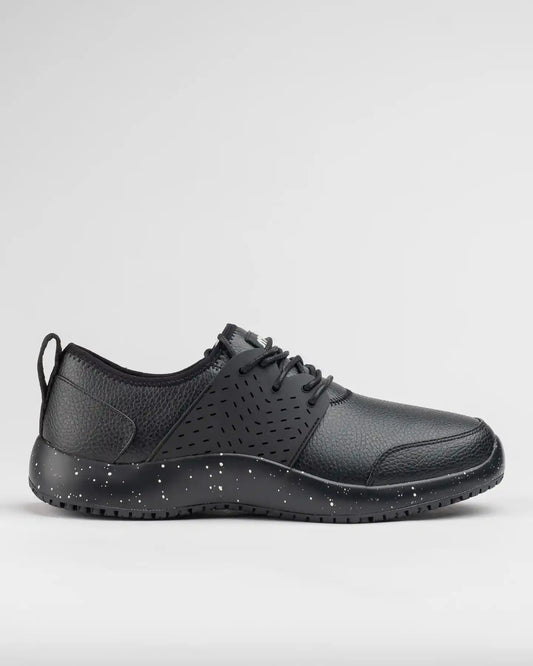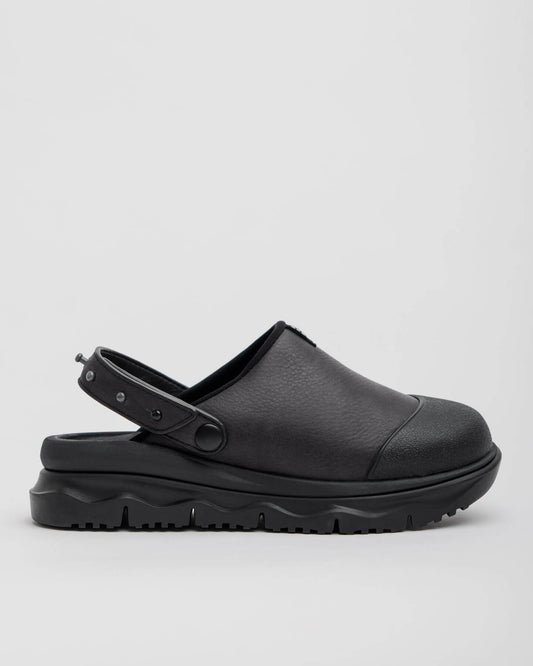8 Challenges of Nursing
Alex Kinejara
Nursing school may have given you the skills you need to be a nurse, but nothing can prepare you for the challenges of nursing quite like working as a nurse.
A nursing profession is undoubtedly a rewarding career full of meaningful work, above-average salaries, and lifelong connections. But, like any career, it’s not without its ups and downs. With that being said, self care for nurses is extremely important.
So, what are some of the main nursing challenges? And what can you do about them? Let’s take a closer look.
8 Common Challenges for Nurses (and How to Respond to Them)
A nursing career is an all-encompassing field that combines the challenges of healthcare, education, and customer service. No matter what kind of experienced nurse you are, if you hope to thrive in your career, you’ll want to learn how to navigate these eight common struggles.
#1 Inconsistent Scheduling
Unpredictable schedules are the norm in the nursing industry, especially in hospitals that stay open 24/7. Many nurses work three days a week, but those days can change each time the schedule is posted. For example, one week’s schedule could be day shifts on Monday, Tuesday, and Wednesday; the next could be night shifts on Thursday, Friday, and Saturday.
How to Overcome This Challenge
The easiest way to handle an inconsistent schedule is to embrace it. Because your “weekends” won’t look like the average person’s, everywhere you go on your days off—from the grocery store to the movie theater—will likely be less busy. Travel also becomes easier, as you’ll often end up with several days off in a row.
If a predictable schedule is important to you, you may want to look at nursing jobs with more consistent work hours, such as:
- Nurse educator
- School nurse
- Home health nurse
- Clinic nurse
When you have overnight shifts, you may have to sleep during the day. Blackout curtains can help block out the sunlight while you snooze, and a natural light alarm clock can wake you up when it’s dark.
#2 Long Hours
Even though your days off may change from week to week, one part of your schedule will likely remain consistent: The days are long.
Although 8-hour shifts exist, 10- and 12-hour days are standard for many nurses. When crises occur, or fellow nurses call in sick, your shift may extend past the 12-hour mark to guarantee consistent coverage.
How to Overcome This Challenge
When you’re not at work, be sure to practice self care and get plenty of rest to support your mental health If you need help with errands and responsibilities, don’t hesitate to ask your friends and family for help.
While at work, try to take every allotted break during your shift. Although this can be easier said than done, skipping breaks can lead to a decline in workplace performance—and for frontline nurses, staying focused can be the difference between life and death.
#3 Emotional Strain
The emotional toll may be one of the biggest challenges of being a nurse. On any given day, you might work with the following:
- Confused or frustrated patients
- Sick or injured children
- End-of-life patients
- Grieving families
These emotionally-charged moments can be challenging for anyone, but empathetic nurses may find some days exceptionally hard. Feelings of stress, sadness, guilt, and helplessness are not uncommon, especially among new nurses.
How to Overcome This Challenge
All these emotions can be overwhelming. However, it’s important to remember that your work as a nurse is wholly positive for patients and their families—no matter what happens. You may also find it helpful to focus on all the joyful moments you experience as a nurse, such as delivering a baby or helping a patient walk again.
If you need help processing emotions, consider consulting with a counselor or therapist. These professionals can work through difficult experiences with you and give you tools to cope with future challenges.
#4 Staffing Shortages
Between the aging population, an uptick in nurses retiring, and increased feelings of burnout, many hospitals and clinics are currently short-staffed. This nursing shortage has working nurses feeling the pressure.
With fewer nurses on the schedule, current RNs may find themselves working more or longer hours or providing critical care to more patients, all of which can lead to burnout.
How to Overcome This Challenge
Perhaps the best way to handle this challenge is to understand what lawmakers are doing to fix the nursing shortage. The federal government has doubled the number of scholarships for nursing school candidates, while some states have also increased funding to offer more grants and increase capacity in nursing schools.
However, these changes will take time to materialize. In the meantime, you can look for workplaces with clear overtime and scheduling policies. Joining a nursing union may also lead to better working conditions, as many unions enforce nurse-to-patient ratios and prohibit mandatory overtime.
#5 Taxing Shifts
The impact of working as a nurse isn’t just emotional—nursing can also take a physical toll on your body. Many nurses spend most of their long shifts standing or walking.
Spending all that time on your feet can lead to:
- Foot pain
- Leg pain
- Lower back pain
- Cardiovascular problems
- General fatigue
Given enough time, these symptoms can follow you outside the workplace and make destressing from a long day more difficult.
How to Overcome This Challenge
There’s no way around working on your feet as a nurse. As such, your best bet is to wear specially-made work shoes for nurses. To feel as good at the end of your shift as you do at the beginning, look for shoes with:
- Arch support
- Adjustable sides
- Soft-yet-supportive insoles
- Non-slip outsoles
- Water-resistant construction

#6 Workplace Risks
Naturally, working as a nurse means interacting with sick people. As a result, nurses come in contact with illnesses, diseases, and potentially hazardous chemicals more often than the average person. Harmful drugs, needles, and bodily fluids are also in the mix.
Like many other workers, nurses are also at risk from workplace injuries like back strains. But instead of lifting heavy boxes, nurses get to lift squirmy people who usually don’t want to cooperate.
How to Overcome This Challenge
To avoid catching illnesses and infectious diseases, follow all workplace hygiene and safety protocols. These may include wearing personal protective equipment (PPE) and frequently washing your hands. PPE can also protect you from hazardous substances and biowaste.
When you have to lift a bulky object or transfer a patient, be sure to lift with your knees, not your back. And never try to be a hero; if something is too heavy, ask for help. Besides, you’re a nurse—you’re already a hero.
#7 Communication Challenges
Communication is vital in any workplace, and that’s doubly true when lives are on the line. However, nurses may not always receive the most transparent communication from those around them.
Understanding your patients’ wants and needs can sometimes be challenging, especially when language barriers or injury-related speech disorders are at play. The same issues can occur when dealing with a patient’s family.
Additionally, problems can arise when information needs to be conveyed from the top down. Your colleagues in administrative or managerial positions may not fully grasp the realities of “on the ground” nursing, and miscommunications can happen.
How to Overcome This Challenge
If language is an issue, translation services can be a lifesaver—literally. Your hospital’s administration staff may be able to hire an interpreter for commonly-spoken local languages or contract out translation services for one-off cases. In a pinch, a translation app can help bridge the gap.
As for miscommunications with coworkers, the best way to approach the problem is to provide feedback about your colleague’s communication style. That way, you reduce the chance of communication breakdown in the future.
#8 Changing Technology
In the long run, emerging technologies will likely make your work as a nurse much more manageable. Unfortunately, short-term growing pains caused by adopting these technologies can lead to on-the-job headaches.
New technologies in hospitals and clinics range from updated medical devices to flashy scheduling software.
How to Overcome This Challenge
To familiarize yourself with any new piece of technology, be sure to attend all training sessions and ask questions if you need to. Nobody wins when you’re confused about a new system or process, so don’t hesitate to ask for support—even if it’s well after the last tutorial.
Lastly, keep an open mind about new tech. It may seem more complicated now, but in a few weeks’ time, you might end up singing its praises.
Conquer the Challenges of Nursing One Step at a Time
Nursing may be a challenging career path, but it’s just as rewarding. Besides, no job is perfect, and at least those in charge are working on solutions for the most significant problems.
With that said, there’s one challenge you can address immediately: The day-to-day comfort of the feet that carry you through each shift.
When you slip on a pair of work shoes for nurses at the start of each day, you take care of your feet and, by extension, your entire body. Those 12-hour shifts won’t feel so long when you’re walking on a cloud.
Snibbs offers a range of sizes and styles to complement any set of scrubs. Made with the hospital and other healthcare settings in mind, these slip resistant work shoes can help you overcome any workplace challenge—one step at a time.
Sources:
U.S. Bureau of Labor Statistics. Occupational Outlook Handbook: Registered Nurses. https://www.bls.gov/ooh/healthcare/registered-nurses.htm
Psychology Today. Why and How You Should Take Breaks at Work. https://www.psychologytoday.com/ca/blog/the-wide-wide-world-of-psychology/201704/why-and-how-you-should-take-breaks-at-work
National Library of Medicine. Feelings and Emotions of Nurses Related to Dying and Death of Patients – A Pilot Study. https://www.ncbi.nlm.nih.gov/pmc/articles/PMC8187100/
National Library of Medicine. Nursing Shortage. https://www.ncbi.nlm.nih.gov/books/NBK493175/
Politico. The answer to America’s nursing shortage. https://www.politico.com/newsletters/future-pulse/2022/10/04/tktk-00060137
National Library of Medicine. Evidence of Health Risks Associated with Prolonged Standing at Work and Intervention Effectiveness. https://www.ncbi.nlm.nih.gov/pmc/articles/PMC4591921/
U.S. Bureau of Labor Statistics. Occupational Outlook Handbook: Registered Nurses. https://www.bls.gov/ooh/healthcare/registered-nurses.htm













